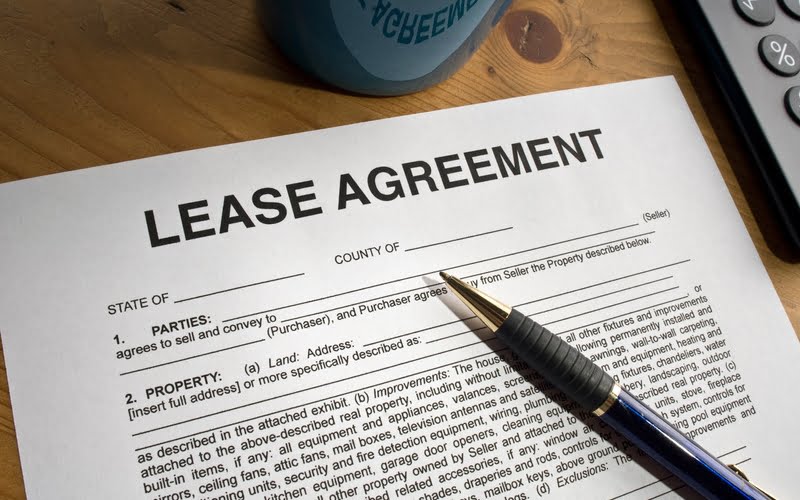Last Updated on March 18, 2024 by Kelvin Nielsen
If you are a tenant in Delaware, you may be wondering if your landlord can break your lease. The answer is yes, but only under certain circumstances. Landlords must have legal grounds to terminate a lease, and they must follow specific procedures to do so.

Legal grounds for lease termination in Delaware include a tenant’s failure to pay rent, violation of the lease agreement, or engaging in illegal activities on the property. Landlords cannot terminate a lease in retaliation for a tenant’s exercise of their legal rights or for discriminatory reasons.
If your landlord wishes to terminate your lease, they must follow specific procedures, including providing written notice, filing a lawsuit, and obtaining a court order. If you receive notice from your landlord that they wish to terminate your lease, it is important to understand your legal rights and options.
Key Takeaways
- Landlords in Delaware can terminate a lease under certain circumstances, such as a tenant’s failure to pay rent or violation of the lease agreement.
- Landlords must follow specific procedures, including providing written notice and obtaining a court order, to terminate a lease.
- If your landlord wishes to terminate your lease, it is important to understand your legal rights and options.
Related Posts:
- What a Landlord Cannot Do in Delaware
- What Rights Do Tenants Have in Delaware?
- Can You Withhold Rent in Delaware? A Guide to Tenant Rights
Legal Grounds for Lease Termination in Delaware
If you’re a landlord or tenant in Delaware, it’s crucial to know the legal grounds for lease termination. Understanding Delaware law and lease agreements will help you avoid legal trouble and protect your rights.
Understanding Delaware Law and Lease Agreements
Delaware law requires both landlords and tenants to comply with the state’s Residential Landlord-Tenant Code. This code outlines the rights and obligations of both parties and provides guidelines for lease termination.
Lease agreements in Delaware can be written or oral, and tenants have the right to a livable dwelling. Landlords must provide safe and sanitary housing and make necessary repairs within a reasonable time frame.
Tenant Protections and Landlord Obligations
Tenants in Delaware have certain protections against lease termination, such as the right to withhold rent for a landlord’s failure to make necessary repairs. Landlords cannot retaliate against tenants for exercising their rights under the law.
Landlords in Delaware must provide written notice of lease termination, except in cases of domestic violence or lease violation. They must also return the tenant’s security deposit within 20 days of lease termination.
Early Termination Clauses and Military Service Considerations
Lease agreements in Delaware may include early termination clauses that allow tenants to end their lease early without penalty. Active military duty also allows tenants to break a lease early without penalty.
If a landlord wishes to terminate a lease, they must give written notice to the tenant at least 60 days before the end of the lease term, except in cases of month-to-month tenancy.
Related Posts:
- Delaware Lease Termination Law: What You Need to Know
- Delaware Landlord-Tenant Code: Month-to-Month Tenancy
Procedures for Lease Termination and Eviction
If you are a landlord in Delaware, you must follow the proper procedures for terminating a lease. The process can be complex and time-consuming, so it is important to understand the steps involved. Here are the procedures for lease termination and eviction in Delaware:
Notice Requirements and Eviction Process
If a tenant fails to pay rent or violates the terms of the rental agreement, a landlord can begin the eviction process. Before you can file for eviction, you must provide the tenant with a written notice to quit. The notice must specify the reason for the eviction and give the tenant a specific amount of time to vacate the premises. If the tenant fails to vacate the premises, you can file a summary possession action in the Justice of the Peace Court.
Court Proceedings and Legal Recourse
If the tenant contests the eviction, the case will be set for trial. At the trial, you will have to prove that the tenant violated the rental agreement or failed to pay rent. If you win the case, you can obtain a writ of possession, which authorizes the sheriff to remove the tenant from the premises. If the tenant believes that the eviction was unlawful, they can file an appeal with the Superior Court.
Tenant Rights and Landlord Retaliation
Tenants have the right to challenge an eviction and seek legal advice. If a landlord retaliates against a tenant for exercising their rights, the tenant can file a complaint with the Attorney General’s Office.
Landlords cannot discriminate against tenants based on their race, gender, religion, or other protected characteristics. If a tenant is a victim of domestic violence, the landlord cannot terminate the lease or evict the tenant.
Related Posts:
Disclosure: The content herein isn’t a substitute for advice from a professional attorney. It’s only meant to serve educational purposes. If you have a specific question, kindly seek expert attorney services.
Sources: CHAPTER 53. Landlord Obligations and Tenant Remedies, Residential Landlord-Tenant Code,

Amanda Rose is a seasoned landlord with 13+ years of expertise in overseeing diverse properties. Her adept management spans single and family homes, along with multi-family apartments and condos, across Wyoming and South Dakota. Her commitment and proficiency have cemented her status as a thriving property management professional.
She is a member of the following organizations: Wyoming Landlord’s Association, National Association of Residential Property Managers (NARPM), Wyoming Apartment Association, South Dakota Multi-Housing Association (SDMHA), and South Dakota Landlord Association (SDLA).







